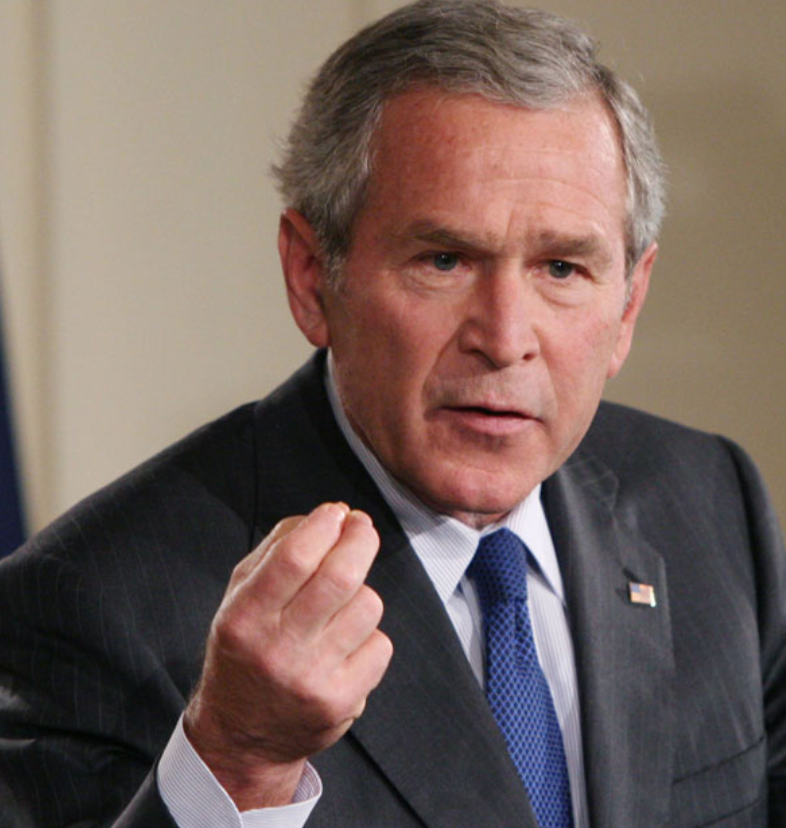It’s hard to believe there was a time when America thought that George W. Bush was the worst president we’d ever had, a manifesto elevated to caricature proportions by once great documentarian Michael Moore’s 2004 film, Fahrenheit 9/11. And yet, almost twenty years after Bush stole the presidency (much like Trump somehow managed to), it looks as though he was nothing more than a jovial jester/puppet in comparison to the deranged and racist jester/puppet played by Trump. Though Kanye West may have infamously declared “George W. Bush does not care about black people” to Mike Meyers’ shock in the wake of the Bush administration’s response to Hurricane Katrina, it seems that nowadays, that might not be the case. This much seemed evident in a speech Bush gave today for a George W. Bush Institute-related event in New York.
For the first time speaking candidly about the state of American and global politics since a certain homme diabolique took office, Bush stated, “For more than seventy years, the presidents of both parties believed that American security and prosperity were directly tied to the success of freedom in the world. And they knew that the success depended, in large part, on U.S. leadership. This mission came naturally, because it expressed the DNA of American idealism.”
His shade throwing was, thus, eased into. He took his time with it as though romancing the art, adding, “We know, deep down, that repression is not the wave of the future. We know that the desire for freedom is not confined to, or owned by, any culture; it is the inborn hope of our humanity.” The coup de grace, of course, came when Bush insisted, “Our identity as a nation, unlike other nations, is not determined by geography or ethnicity, by soil or blood… This means that people from every race, religion, ethnicity, can be full and equally American. It means that bigotry and white supremacy, in any form, is blasphemy against the American creed.”
No, there was no mistaking who Bush was referring to with his ardent urgency calling for unity and acceptance. Not one to stray too far away from his Republicanism, Bush still felt inclined to bring God into it, noting that we have forgotten “the image of God we should see in each other.” Though, evidently, he didn’t see any such image in Trump or Clinton as he left his ballot blank in the 2016 election.
Elsewhere, Bush was even able to speak eloquently about other countries, which at the time of his presidency, we weren’t even aware he knew about (other than Iraq and Afghanistan), commenting, “Parts of Europe have developed an identity crisis. We have seen insolvency, economic stagnation, youth unemployment, anger about immigration, resurgent ethno-nationalism, and deep questions about the meaning and durability of the European Union.” His unexpected show of caring effusion isn’t necessarily out of character these days ever since he became an “artist,” but it would have been nice to see him display this sense of compassion and reason when, you know, he was actually the president.






















